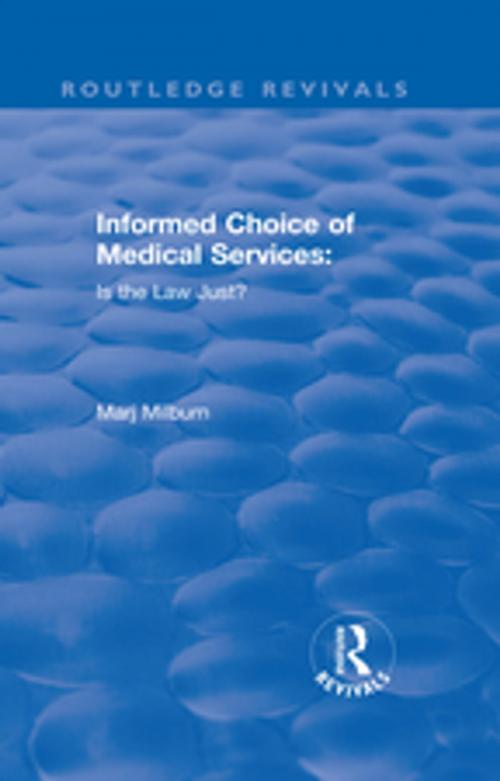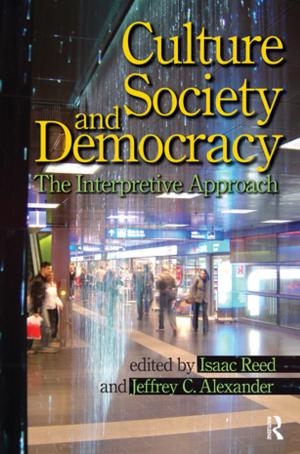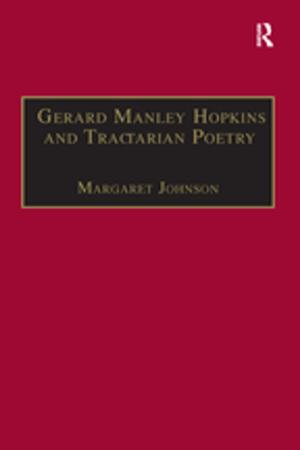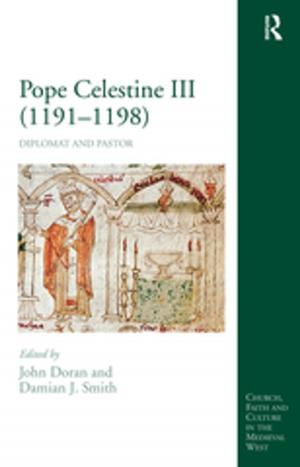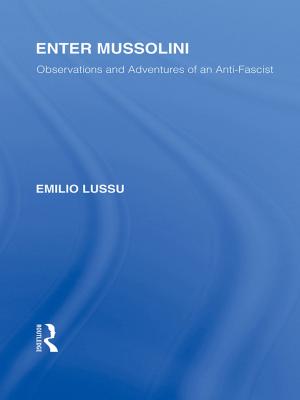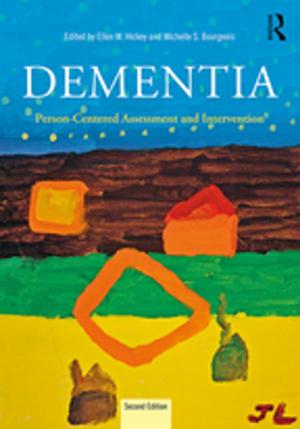Informed Choice of Medical Services: Is the Law Just?
Nonfiction, Social & Cultural Studies, Social Science, Sociology| Author: | Marj Milburn | ISBN: | 9781351791038 |
| Publisher: | Taylor and Francis | Publication: | September 29, 2017 |
| Imprint: | Routledge | Language: | English |
| Author: | Marj Milburn |
| ISBN: | 9781351791038 |
| Publisher: | Taylor and Francis |
| Publication: | September 29, 2017 |
| Imprint: | Routledge |
| Language: | English |
This title was first published in 2001. This work is a uniquely multi-disciplinary contribution to the existing bioethical literature on the topic of informed choice of medical services. It is also the first comprehensive bioethical text to confront the central issue of power in the clinical encounter and to argue for statutory protection of the right to informed choice. While the majority of bioethicists argue for a conciliatory, rather than adversarial, approach to the chronic problem of uninformed consent, the author of this work argues that the external regulation of medicine is essential if the right to informed choice is to be protected. This argument is based upon an extensive review of the bioethical, legal, political, medical, sociological and philosophical literature, as well as a wide range of empirical and anecdotal evidence, evolving from a detailed exploration of power and the limits of rationality in the clinical encounter.
This title was first published in 2001. This work is a uniquely multi-disciplinary contribution to the existing bioethical literature on the topic of informed choice of medical services. It is also the first comprehensive bioethical text to confront the central issue of power in the clinical encounter and to argue for statutory protection of the right to informed choice. While the majority of bioethicists argue for a conciliatory, rather than adversarial, approach to the chronic problem of uninformed consent, the author of this work argues that the external regulation of medicine is essential if the right to informed choice is to be protected. This argument is based upon an extensive review of the bioethical, legal, political, medical, sociological and philosophical literature, as well as a wide range of empirical and anecdotal evidence, evolving from a detailed exploration of power and the limits of rationality in the clinical encounter.
